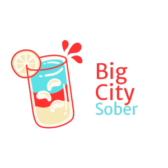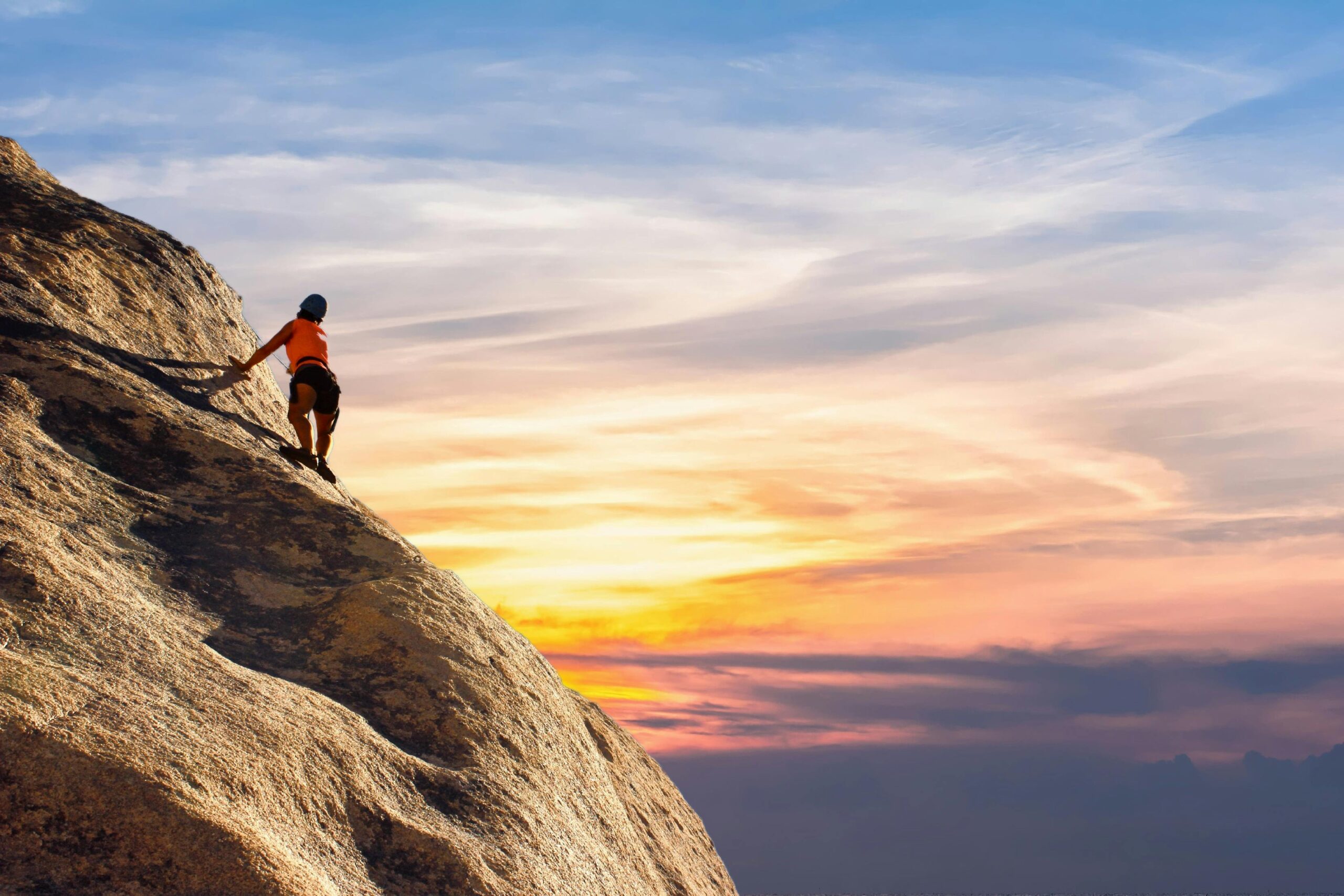Moderation was something I had dreamed about for pretty much the entire time I was drinking. To me, moderation was something to aim for, a goal to be achieved. I would spend hours devising plans to ensure I’d be able to enjoy a few drinks, share some laughs, and then gracefully call it a night at the appropriate time. But, despite my best intentions, these plans inevitably fell apart. Why? Because for me, moderation simply wasn’t an option.
Realising I Was Different
It took me a little while to realise that I was different from what you might call a “normal” drinker. The simple fact of the matter was that I didn’t seem to have an off switch. When I reflect on my drinking days, it’s evident to me now that this missing piece became increasingly problematic over time. In the UK, where I grew up, it was very common for people to start drinking around the ages of 15 or 16, and I was no different. My friends and I would spend the week planning the various intricacies required to get drunk on the weekend. When Friday rolled around, if all went well, we’d be drinking at someone’s house with lenient or absent parents, or in a park, much to the disdain of the general public. Back then, drinking felt new and exciting, as if everyone were learning about alcohol through experience. Mishaps were inevitable.
The Warning Signs
It’s tempting for me to look back at those days as nothing but carefree and exciting, but the truth is there were unmistakable signs that I was setting myself up for a long battle with moderation. The earliest clear sign I can remember occurred in Magaluf, a popular holiday destination for teenagers. I was 17 years old, and it was my first holiday abroad with friends; we were ready to make the most of every moment. The holiday was filled with booze, nightclubs, and the intoxicating thrill of freedom.
On the very first night, my three friends and I sauntered out of our hotel and straight into a bar that promised two hours of unlimited drinks for €10—an offer we simply couldn’t refuse. We ended up paying for this three times and stayed for six hours. At the end of this, suitably intoxicated, the other guys in my group decided it would be wise to call it a night. We had spent the entire day travelling, after all, and we had a whole week ahead of us. I was incensed. Why on earth would I want to call it a night when we hadn’t even walked along the strip yet?! I told them that if they wanted to go, they should go. I would stay with the group of late-twenties lads from Yorkshire that we had got talking to and head to the strip, planning to catch up with my friends at breakfast the next day.
Looking back, and I didn’t see it then, but that decision was needlessly reckless on my part and selfish towards my friends, who had the right idea and were likely worried about me. Nothing was going to stop me from continuing the night. This unfortunately became a pattern whenever I consumed alcohol and was one of the key reasons I felt desperate to learn how to moderate. It seemed so unfair to me that the first half of drinking with friends could be such fun, yet the second half always had to become so precarious. This leads me directly to the other key reason for my desperation: blackouts.
Understanding Blackouts
The blackouts crept up on me gradually. I don’t recall suffering from them during my late teens and early twenties, but they certainly became a persistent and frightening issue in my mid to late twenties. The truth is, there’s nothing more terrifying than waking up after a blackout, and if you’re reading this and have experienced them as well, you know exactly what I’m talking about. I have discussed my issues around blackouts in “My Sobriety Journey: Overcoming Binge Drinking and Finding Mental Clarity” and I plan to explore the topic further in future posts. These experiences really did take a toll on my mental health. I would often hear comments like, “oh, you weren’t that bad,” or “It happens to the best of us,” but it was the not knowing that was tearing me apart.
On one particular occasion, during a holiday in Portugal, I experienced a blackout that prompted me to declare for the first time that I was giving up alcohol. A decade after my trip to Magaluf, I was older but, unfortunately, not much wiser. I was travelling with three close friends I had been away with a few times before, and we were all excited to explore somewhere new. Although the Magaluf-style holidays were behind me, drinking alcohol still featured heavily on the agenda, as was the norm for everyone in my social circle. On our last full day, we decided to go all out to mark the end of the holiday. We started with an excellent tour of the Sandeman port cellar in mid-afternoon, planning to visit several rooftop bars around Porto afterwards, enjoying drinks and small dishes along the way. By this time, I was fully aware of my propensity to black out, yet I let my guard down significantly because I had enjoyed a successful trip up to this point.
Following the complimentary port we had enjoyed after the tour; we made our way to the first rooftop bar on our list and settled in. It was around 5 PM, and the atmosphere was electric, filled with laughter and chatter as people basked in the evening sun. We ordered two bottles of wine to share, and the excitement of the evening ahead made it easy to forget my earlier caution. The problem I had with wine was that I drank it far too quickly. Being primarily a beer drinker, I would habitually drink wine at the same pace, which was hugely problematic, as wine can be nearly three times the strength of beer. As was always the case before a blackout, I was having a wonderful time.
We moved on to the next place, ordering more wine, which I was later told I drank the majority of, conveniently forgetting to eat because I claimed I wasn’t hungry. Around this time, I remember feeling distinctly drunk; I had to concentrate harder to form sentences and found myself raising my voice, despite there being no discernible change in the background noise. My last memory of the night was leaving the bar while my friend paid and getting into the lift to head down to ground level, singing loudly to myself as we shared the space with other customers. As I write this, I cringe with embarrassment because now that I’m sober, I can only imagine the discomfort those other people must have felt being trapped in a lift with me. Regardless, my next memory was waking up on the sofa of our Airbnb, being told that we needed to be at the airport in an hour.
I knew from my friends’ facial expressions that it was not good. A mixture of concern and disappointment, I knew I had ruined the night. Normally when I wake up from a blackout I am alone and can hide away, but that wasn’t the case here. I made my apologies without knowing what I had done and started to pack my things in silence. We had made our way to the airport and had gone through security before I finally plucked up the courage to ask about what happened last night. I was surprised and grateful that they took a sympathetic tone and told me that I had lost control. When we had arrived at the third venue, the man working on the door took one look at me and refused access. That did not sit well with me, and I tried to negotiate in terrible Spanish, despite of course being in Portugal. At this point my friends wanted to take me back to the Airbnb, but I wasn’t having it. I hurled insults at one member of the group and told her she was boring amongst other things. Despite this, she and my other two friends continued to insist we all went home and eventually convinced me through the promise of a bottle of wine waiting in the fridge back at the apartment. To everyone’s relief, I passed out moments after getting back.
I cannot express how grateful I am to have friends that have stuck by me through drunken episodes such as this one. After a certain amount of alcohol I just became a completely different person and I carry a great deal of shame about that. The examples I have detailed in this post highlight the two key issues I have faced in my battles with alcohol: not having an off switch and experiencing blackouts. It meant that whenever I went out for a drink I would be walking a tightrope, never certain about which way the night would turn.
My Take on Moderation
To me, successful alcohol moderation means being able to go out for a fixed number of drinks, enjoy them, and then call it a night. By the time I quit for good, I had 14 years of evidence to know that was never going to be an option for me. I was damaging my relationships and harming my mental health, all in the pursuit of moderation. Although it took much longer than I would have liked, I am eternally grateful that I concluded that this was a pursuit I would never emerge victorious from.
If any of this sounds familiar to you or if you have had multiple failed attempts at moderation, my best advice is to redirect the energy you spend trying to achieve it into something that will genuinely benefit your life. For me, when I decided enough was enough, my first step was to commit to doing a parkrun each Saturday. The first time I declared I was quitting alcohol after my Portugal holiday, I tried to do too much and got swept up in the “honeymoon period” of my sobriety. I burned out quickly and found myself back in the moderation battle in less than three months. This time, however, I built it up slowly. I started with the parkrun, setting myself time targets. Once I began to notice improvements in my fitness, I joined a gym. Then, using the money I saved from not drinking on weekends, I hired a personal trainer.
On a final note, the best thing about accepting that moderation isn’t worth it is that it is entirely in your control. I know that if I don’t have that first drink, every word I say and every action I take comes from a conscious mind. My anxiety levels have improved significantly, and the only change I needed to make was not having that first drink. Of course, I understand that there are many reasons why that is easier said than done, but in terms of practical application, that really is it.
If you have related to this in any way, I would love to hear from you. Let’s share our experiences and support one another—leave a comment below, or feel free to get in touch at bigcitysober@gmail.com.

